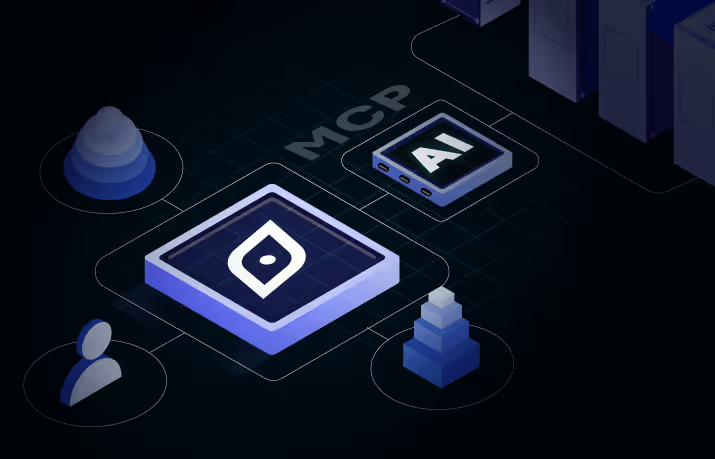Early-Career Talent Acquisition: A promising bet against the talent war
The last year uncovered a new era of work – one that offered greater flexibility, digital tools, and autonomy than ever before. Early-career talent is differentiating themselves as a vital segment of the talent pool at a time like this. A recent survey pointed out that 83% of senior managers are more likely to hire early talent, citing enthusiasm about starting a career and fresh perspectives and ideas as their top strengths.
Early talent is a group of those with less than three years of work experience. This group typically comprises of talent that is about to graduate from college or recent graduates.
With the forward-thinking skills required to lead employers through digital transformation, this group is proving to be extremely valuable to modern-day businesses. They can help companies boost ROI through digital innovation, provide insights on current market scenarios, and generate winning ideas coming from a diverse group.
Despite today’s uncertain business environment, companies must continue to build their future workforces by investing in early-career talent.
Why Early Talent Is Imperative to Modern-Day Business Success
Aside from their digital expertise, today’s early talent has so much to offer. Industry research indicates that this includes a strong work ethic, a focused mindset, a bigger purpose, and a flexible, open mind focusing on diversity and inclusion.
This group tends to be flexible in their approach, as opposed to older talent, who might be set in their ways. In addition, this tech-savvy group may not require extensive training with technology. Early talent hires don’t come with a lot of preconceived notions about how things should be done, and recruiting them is mutually rewarding as they grow their skillsets while companies benefit from their dedication.
When you add these factors to early talent’s drive to succeed, the ability to navigate technologies, and our ever-evolving digital world, it’s no surprise that top global enterprises are already pursuing innovative recruiting methods to hire from the largest talent pool.
To effectively engage with this sought-after cohort of job-seekers, organizations will need to evolve their recruitment methods to be more authentic, digital, and proactive.
Best Approaches to Attract and Retain Early Talent
Successfully recruiting early-career talent requires understanding diverse personalities and developing a recruiting process that engages their interests and preferences.
To effectively engage with this highly-motivated group, organizations must evolve their recruitment tactics to be more connecting, impacting, and personalized.
Demonstrate Opportunities for Growth
The new-generation employees need to know what their future career paths look like. To attract this segment of the workforce, organizations need to demonstrate a clear career plan with frequent communications around L&D efforts and mentoring opportunities. This can include organization-wide reskilling using AI or leadership development programs that support their goals.
When employees suspect that their careers lead to nowhere, they lose interest in their work and switch organizations harming the retention rates heavily. So it becomes crucial to take the growth of employees into account to keep them relevant to the industry and the organization.
Provide a Stable Environment
Stability at work and in the workplace are both paramount to the new generation of employees because they are just starting their careers and don’t wish to work in a place that displays uncertainty about their future
During the early part of 2020, employees were being laid off to prevent the companies from drowning in debt. The only companies that survived this crisis were the ones with the most robust corporate structures and cultures. Early talent is naturally attracted to companies where they see a stable environment is maintained as it reflects a managed structure and proper management.
Innovation in Compensation
A compensation model that encourages innovation should balance the risks and rewards associated with the work. Companies globally are now retiring conventional compensation models and are betting on more innovative and flexible compensation models to drive employee satisfaction.
An effective compensation model keeps workers motivated and committed to the company’s objectives and values, and it is critical to driving growth opportunities, personal employee growth, and the reconciliation of personal and family life.
Early talent prefers more than just a basic compensation model, and expectations of this group are exceptionally high. This is because, with fast-moving economies, emerging technologies, and structures, they look at compensation as an essential aspect of work that needs innovation.
Employers can develop compensation models through any of the ways mentioned below:
- They can offer variable remuneration with a fixed pay to encourage performance-based projects based on individual performance and demonstrated skillsets.
- They can provide emotional remuneration, that is, remuneration that is not of economic value but of significant emotional importance, such as extra vacation days, period leaves, paternity leaves, and extended notice periods.
- One of the popular ways of compensation can be Employee Stock Options or ESOPs that make employees feel a part of the company and feel accountable for the company’s success.
- Offer special bonuses at every milestone achieved to develop employee engagement and loyalty.
The notion that HR practices should reflect an understanding of human psychology is quickly starting to take off in the corporate world, and organizations need to focus on psychological aspects of compensation to drive innovation.
Employer Branding is Crucial
Employers must invest in creating and nurturing a positive brand image; something people want to be a part of. Spending time and resources on attracting the top talent means little if your company branding falls short.
Think about why Gen-Z wants to work at Red Bull, Spotify, or Converse. It’s not because they understand the work or want to work with that specific company; it’s because they admire the brand.
Company branding can include anywhere from a good company culture to celebrating employee achievements that candidates can see and want to be a part of. It is essential to understand that the early talent prefers working in organizations that are essentially brands because inspiration is a moving factor for this talent pool.
Communicate the Social Impact
Early-career employees are increasingly prioritizing purpose-driven work that aligns with their values. Given the impact of the pandemic, HR leaders need to highlight their approach to corporate social responsibility and D&I if they want to stay ahead of the competition.
This group needs to know that they contribute to something much bigger than themselves, a purpose that the organization aligns with.
It need not be a social cause; it can be anything from driving innovation to maximize human potential, as seen in Apple, to connecting families and friends together in much deeper relationships, as seen in Facebook.
Personalization is the key
Early talent also expects a personalized touch when engaging with potential employers, as anything that seems mass communicated will feel disingenuous. From sourcing candidates to onboarding them, personalization is the key to creating a memorable, engaging, and rewarding experience for both.
Candidates tend to expect something from the organization and how the process from sourcing to recruitment will be. If those expectations are left unmatched, the attrition rate witnesses a tremendous peak.
Most organizations have started to focus on personalized candidate experience, resulting in a substantial decrease in time-to-hire and increased candidate satisfaction.
Encourage Work-life balance
The pandemic-gifted remote work model enabled employees to spend more time with their families, travel, and manage a lot more work by staying at home than they could if they were in the office. This reflected a perfect work-life balance, something the early talent needed for a long time.
This resulted in a mindset shift as employees now prefer the comfort of their homes to work rather than a closed office. This gave birth to a better concept of work popularly known as “Hybrid work culture” that combined office work with remote work benefitting both parties.
It’s important to remember that employees might not feel well even when your organization has clearly defined goals or offers bonuses and titles. It’s because well-being has so many elements, including employees’ social, emotional, environmental, financial, and physical wellness.
In 2021, companies are moving from talent data to talent intelligence and utilizing the power of AI and ML in recruitment and retention.
Draup for talent enables HR leaders and Hiring Strategists to dive deep into various trends in hiring and engagement to empower their recruitment with data collected from over 4,500+ Job roles spread across 33 industries, 7,000+ universities, and 30,000 skills.










.svg)

















.svg)





.svg)





.svg)
